Searched: Easter
News
The government plans to close its porous border with Myanmar to boost security, separating ethnic groups that straddle the boundary.
 Ngamreichan Tuithung runs a Christian boarding school that sits right at the border of India’s Manipur state and Myanmar. Amazing Grace Mission School is based in Wanglee Market, a small Indian town, and serves around 150 students from Myanmar and 6 from India.Since Myanmar’s 2021 coup, the school has become a safe haven for parents wanting to send their children away from the violence of the war raging on in Myanmar. To Tuithung, it’s an opportunity to share with students and parents “about God’s love and how God is taking care of us.”For decades, some parents in Myanmar (also known as Burma) have been able to easily send their kids to school in India, thanks to a government policy that allows citizens of either country living within 10 miles of the border to freely enter the other country without a visa. Many tribal communities share ethnic ties, familial bonds, and a way of life transcending territorial boundaries. Tuithung, who is from the Naga ethnic group, grew up in India but has many relatives in Myanmar. Because of their close ties, he can speak Burmese and visits them often.However, all this will change as the Indian government proceeds with its decision to close the international border between India and Myanmar, which shares boundaries with four Indian states: Arunachal Pradesh, Nagaland, Manipur, and Mizoram. India’s home minister Amit Shah says the action is needed to “ensure the internal security” and “to maintain the demographic structure” of northeastern India as the war in Myanmar continues. Plans include constructing a fence and implementing a surveillance system.Tuithung believes that even with tightened borders, the government will provide ...Continue reading... Ngamreichan Tuithung runs a Christian boarding school that sits right at the border of India’s Manipur state and Myanmar. Amazing Grace Mission School is based in Wanglee Market, a small Indian town, and serves around 150 students from Myanmar and 6 from India.Since Myanmar’s 2021 coup, the school has become a safe haven for parents wanting to send their children away from the violence of the war raging on in Myanmar. To Tuithung, it’s an opportunity to share with students and parents “about God’s love and how God is taking care of us.”For decades, some parents in Myanmar (also known as Burma) have been able to easily send their kids to school in India, thanks to a government policy that allows citizens of either country living within 10 miles of the border to freely enter the other country without a visa. Many tribal communities share ethnic ties, familial bonds, and a way of life transcending territorial boundaries. Tuithung, who is from the Naga ethnic group, grew up in India but has many relatives in Myanmar. Because of their close ties, he can speak Burmese and visits them often.However, all this will change as the Indian government proceeds with its decision to close the international border between India and Myanmar, which shares boundaries with four Indian states: Arunachal Pradesh, Nagaland, Manipur, and Mizoram. India’s home minister Amit Shah says the action is needed to “ensure the internal security” and “to maintain the demographic structure” of northeastern India as the war in Myanmar continues. Plans include constructing a fence and implementing a surveillance system.Tuithung believes that even with tightened borders, the government will provide ...Continue reading... |
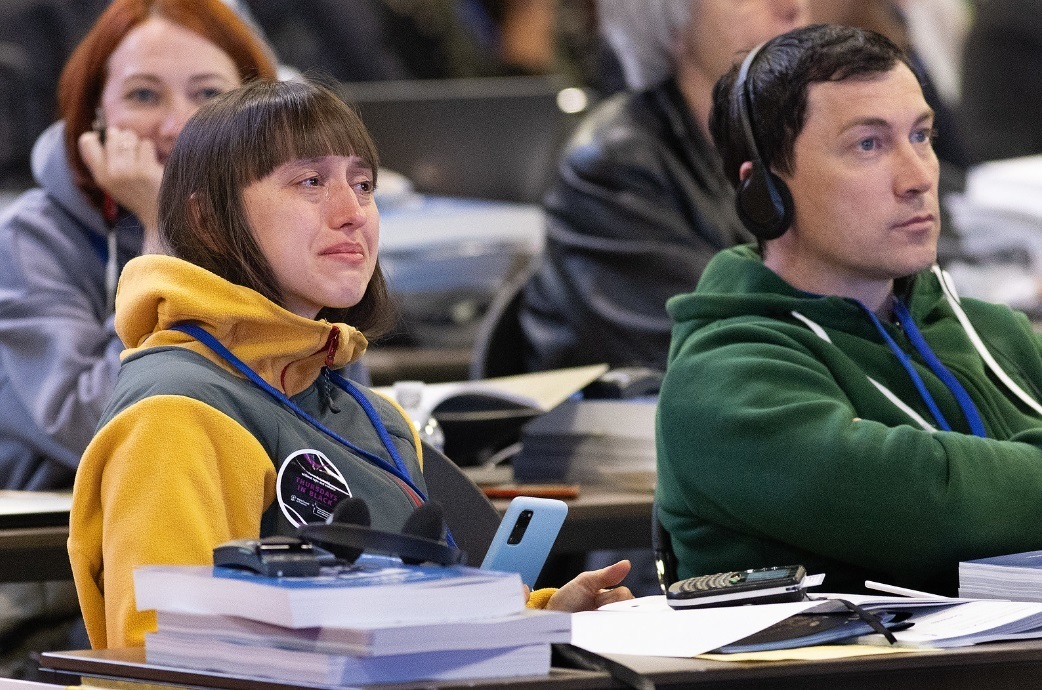 Delegates at the United Methodist Church General Conference voted this week to allow a regional body based in Eastern Europe to disaffiliate from the denomination over theological issues. Delegates at the United Methodist Church General Conference voted this week to allow a regional body based in Eastern Europe to disaffiliate from the denomination over theological issues. |
NIL deals in college athletics present new challenges—and opportunities—for colleges and students.
 When Deverin Muff played Division I college basketball at Eastern Kentucky University, student athletes weren’t allowed to earn money off their name, image, and likeness (NIL)—their personal brand.Now he’s a professor at the university, and some of the players in his classes have agents. An NCAA policy change in 2021—heralded by Muff and other Christian athletes as a matter of fairness—allows college athletes to earn money beyond financial aid or scholarships.“This is a matter of justice, frankly. … It righted a historic wrong,” said Pepperdine University sports administration professor Alicia Jessop. College sports, especially football and basketball, draw in billions in revenue.Christians in college athletics have welcomed the change to allow NIL deals, according to interviews with CT. But they are also navigating an unknown landscape and finding challenges along the way. The NCAA itself is still reeling from the resulting shifts in the economics of college sports, passing additional NIL rules just last week.Jessop was recently teaching a class on NIL deals at Pepperdine, where she is also the faculty representative to the NCAA. One student decided to put the class into practice immediately and reached out to a sunglasses brand to pitch a deal. In a short time, the student had a free pair of sunglasses delivered.“It’s a teaching tool,” said Jessop. “They think they’re learning about NIL so they’re focused, but they’re getting a whole business curriculum put in front of them.”Under the new NCAA rules passed last week, schools can be more directly involved in NIL deals and they can offer a support system that helps educate students ...Continue reading... When Deverin Muff played Division I college basketball at Eastern Kentucky University, student athletes weren’t allowed to earn money off their name, image, and likeness (NIL)—their personal brand.Now he’s a professor at the university, and some of the players in his classes have agents. An NCAA policy change in 2021—heralded by Muff and other Christian athletes as a matter of fairness—allows college athletes to earn money beyond financial aid or scholarships.“This is a matter of justice, frankly. … It righted a historic wrong,” said Pepperdine University sports administration professor Alicia Jessop. College sports, especially football and basketball, draw in billions in revenue.Christians in college athletics have welcomed the change to allow NIL deals, according to interviews with CT. But they are also navigating an unknown landscape and finding challenges along the way. The NCAA itself is still reeling from the resulting shifts in the economics of college sports, passing additional NIL rules just last week.Jessop was recently teaching a class on NIL deals at Pepperdine, where she is also the faculty representative to the NCAA. One student decided to put the class into practice immediately and reached out to a sunglasses brand to pitch a deal. In a short time, the student had a free pair of sunglasses delivered.“It’s a teaching tool,” said Jessop. “They think they’re learning about NIL so they’re focused, but they’re getting a whole business curriculum put in front of them.”Under the new NCAA rules passed last week, schools can be more directly involved in NIL deals and they can offer a support system that helps educate students ...Continue reading... |
The payoff for Easter is Pentecost.
|
NIL deals in college athletics present new challenges—and opportunities—for colleges and students.
 When Deverin Muff played Division I college basketball at Eastern Kentucky University, student athletes weren’t allowed to earn money off their name, image, and likeness (NIL)—their personal brand.Now he’s a professor at the university, and some of the players in his classes have agents. An NCAA policy change in 2021—heralded by Muff and other Christian athletes as a matter of fairness—allows college athletes to earn money beyond financial aid or scholarships.“This is a matter of justice, frankly. … It righted a historic wrong,” said Pepperdine University sports administration professor Alicia Jessop. College sports, especially football and basketball, draw in billions in revenue.Christians in college athletics have welcomed the change to allow NIL deals, according to interviews with CT. But they are also navigating an unknown landscape and finding challenges along the way. The NCAA itself is still reeling from the resulting shifts in the economics of college sports, passing additional NIL rules just last week.Jessop was recently teaching a class on NIL deals at Pepperdine, where she is also the faculty representative to the NCAA. One student decided to put the class into practice immediately and reached out to a sunglasses brand to pitch a deal. In a short time, the student had a free pair of sunglasses delivered.“It’s a teaching tool,” said Jessop. “They think they’re learning about NIL so they’re focused, but they’re getting a whole business curriculum put in front of them.”Under the new NCAA rules passed last week, schools can be more directly involved in NIL deals and they can offer a support system that helps educate students ...Continue reading... When Deverin Muff played Division I college basketball at Eastern Kentucky University, student athletes weren’t allowed to earn money off their name, image, and likeness (NIL)—their personal brand.Now he’s a professor at the university, and some of the players in his classes have agents. An NCAA policy change in 2021—heralded by Muff and other Christian athletes as a matter of fairness—allows college athletes to earn money beyond financial aid or scholarships.“This is a matter of justice, frankly. … It righted a historic wrong,” said Pepperdine University sports administration professor Alicia Jessop. College sports, especially football and basketball, draw in billions in revenue.Christians in college athletics have welcomed the change to allow NIL deals, according to interviews with CT. But they are also navigating an unknown landscape and finding challenges along the way. The NCAA itself is still reeling from the resulting shifts in the economics of college sports, passing additional NIL rules just last week.Jessop was recently teaching a class on NIL deals at Pepperdine, where she is also the faculty representative to the NCAA. One student decided to put the class into practice immediately and reached out to a sunglasses brand to pitch a deal. In a short time, the student had a free pair of sunglasses delivered.“It’s a teaching tool,” said Jessop. “They think they’re learning about NIL so they’re focused, but they’re getting a whole business curriculum put in front of them.”Under the new NCAA rules passed last week, schools can be more directly involved in NIL deals and they can offer a support system that helps educate students ...Continue reading... |
 The human rights group Christian Solidarity International has appealed to the UN Human Rights Council to ensure that the Muslim-majority nation of Indonesia implements immediate reforms to protect Christians in West Papua, a region located in the archipelago's easternmost part, where indigenous people are predominantly Christian. The human rights group Christian Solidarity International has appealed to the UN Human Rights Council to ensure that the Muslim-majority nation of Indonesia implements immediate reforms to protect Christians in West Papua, a region located in the archipelago's easternmost part, where indigenous people are predominantly Christian. |
C.S. Lewis recommended discernment over diatribes in exactly the moments we're most eager to indulge in critique.
 I’d just finished reading one of C. S. Lewis’s lesser-known books, Studies in Words, when I happened upon a recent New York Times report on evangelical support for Donald Trump. The former president’s summer of legal woes is off to an early start, and many have asked whether the present trial (or another) will lose him support ahead of Election Day. The answer—among his base, anyway—is undoubtedly no.If anything, the opposite is true: In some circles, his adversities are hailed as a kind of vindication, his endurance on the campaign trail as a sign of divine blessing. “For some of Mr. Trump’s supporters, the political attacks and legal peril he faces are nothing short of biblical,” the report said. “They’ve crucified him worse than Jesus,” one Trump enthusiast told the Times.Now, the Lewis book is mostly fascinating linguistic history, but the last chapter examines how we use language to dispense criticism, and its final two pages are precisely the warning our political culture needs as we plod through another contentious election. It’s certainly the warning I need and the warning I hope fellow Christians will heed, particularly those of us in politically diverse families, friend groups, and congregations.I realized how much I needed it as I read that Times article. It published on Easter Monday and I read it the same day, the drama of Easter weekend fresh on my mind. Suffice it to say, the crucifixion line did not sit well with me.“Worse than Jesus”! I remember thinking. I agree some of this legal stuff is far-fetched, but are you kidding me? Do these people not know what crucifixion entails? Do they not know Trump probably sleeps on silk ...Continue reading... I’d just finished reading one of C. S. Lewis’s lesser-known books, Studies in Words, when I happened upon a recent New York Times report on evangelical support for Donald Trump. The former president’s summer of legal woes is off to an early start, and many have asked whether the present trial (or another) will lose him support ahead of Election Day. The answer—among his base, anyway—is undoubtedly no.If anything, the opposite is true: In some circles, his adversities are hailed as a kind of vindication, his endurance on the campaign trail as a sign of divine blessing. “For some of Mr. Trump’s supporters, the political attacks and legal peril he faces are nothing short of biblical,” the report said. “They’ve crucified him worse than Jesus,” one Trump enthusiast told the Times.Now, the Lewis book is mostly fascinating linguistic history, but the last chapter examines how we use language to dispense criticism, and its final two pages are precisely the warning our political culture needs as we plod through another contentious election. It’s certainly the warning I need and the warning I hope fellow Christians will heed, particularly those of us in politically diverse families, friend groups, and congregations.I realized how much I needed it as I read that Times article. It published on Easter Monday and I read it the same day, the drama of Easter weekend fresh on my mind. Suffice it to say, the crucifixion line did not sit well with me.“Worse than Jesus”! I remember thinking. I agree some of this legal stuff is far-fetched, but are you kidding me? Do these people not know what crucifixion entails? Do they not know Trump probably sleeps on silk ...Continue reading... |
 An Iranian woman who embraced Christianity after growing up under the oppression of Islam is challenging Christians in the West to “rise up” and pray for the Middle Eastern country.? An Iranian woman who embraced Christianity after growing up under the oppression of Islam is challenging Christians in the West to “rise up” and pray for the Middle Eastern country.? |
Unlike Esther of the Bible, an orphan who was born in Jerusalem and exiled in Babylon, Queen Rania of Jordan could not be more polar opposite.
|
 As Easter Sunday approaches and worship leaders are pressured to create meaningful services amid the high expectations of congregations and church leadership, worship duo Shane & Shane are calling for a return to simplicity and reliance on the Holy Spirit. As Easter Sunday approaches and worship leaders are pressured to create meaningful services amid the high expectations of congregations and church leadership, worship duo Shane & Shane are calling for a return to simplicity and reliance on the Holy Spirit. |
In an unprecedented attack against Israel, Iran directly launched 300 drones and missiles over the weekend. Something equally unprecedented was the help Israel received from the regional military coalition and ... Read MoreThe post Middle Eastern Countries Coming to Israel's Defense? appeared first on The Friends of Israel Gospel Ministry.
|
Eastern Orthodox poet Scott Cairns reflects on his new collection, his journey of faith, and poetry's capacity to apprehend inexhaustible realities.
 Fans of the Harry Potter series might recall the magical tents from Harry Potter and the Goblet of Fire. In the film version, when the Weasleys take Harry and others to the Quidditch World Cup, the audience sees rows and rows of small tents, seemingly designed to sleep only one or two people. Harry is confused as he witnesses the others walk into a single tent, which can hold much more than its external size betrays. Once Harry follows suit, he stands in awe at a spacious interior containing several bunkrooms, a dining room, and a large living room.This scene gives a helpful image for the ideas and realities Scott Cairns takes up in his new collection of poems, Lacunae. Cairns is an Eastern Orthodox poet whose work, besides ten poetry collections, includes essays, a spiritual memoir, and the text of two oratorios. Many of the poems in Lacunae concern the mystery of divine things, infinite in scope, somehow fitting within finite spaces and times. Just as Harry Potter was surprised to find all that was contained within an ostensibly small tent, one is shocked to find the fullness of God contained in Mary, and even more so, contained within every Christian by the indwelling of the Holy Spirit.Joey Jekel, a writer and classical educator in Texas, spoke with Cairns about Lacunae, as well as the nature of poetry and the theology that informs his own.To borrow language from Dostoevsky’s The Brothers Karamazov, could you give a brief account of your “sacred history?”I was raised as a Baptist, albeit a Baptist of what we might call a particularly brittle sort. I suppose the saving grace of those years was that my parents wore our community’s fundamentalism relatively lightly. My father liked saying that a ...Continue reading... Fans of the Harry Potter series might recall the magical tents from Harry Potter and the Goblet of Fire. In the film version, when the Weasleys take Harry and others to the Quidditch World Cup, the audience sees rows and rows of small tents, seemingly designed to sleep only one or two people. Harry is confused as he witnesses the others walk into a single tent, which can hold much more than its external size betrays. Once Harry follows suit, he stands in awe at a spacious interior containing several bunkrooms, a dining room, and a large living room.This scene gives a helpful image for the ideas and realities Scott Cairns takes up in his new collection of poems, Lacunae. Cairns is an Eastern Orthodox poet whose work, besides ten poetry collections, includes essays, a spiritual memoir, and the text of two oratorios. Many of the poems in Lacunae concern the mystery of divine things, infinite in scope, somehow fitting within finite spaces and times. Just as Harry Potter was surprised to find all that was contained within an ostensibly small tent, one is shocked to find the fullness of God contained in Mary, and even more so, contained within every Christian by the indwelling of the Holy Spirit.Joey Jekel, a writer and classical educator in Texas, spoke with Cairns about Lacunae, as well as the nature of poetry and the theology that informs his own.To borrow language from Dostoevsky’s The Brothers Karamazov, could you give a brief account of your “sacred history?”I was raised as a Baptist, albeit a Baptist of what we might call a particularly brittle sort. I suppose the saving grace of those years was that my parents wore our community’s fundamentalism relatively lightly. My father liked saying that a ...Continue reading... |
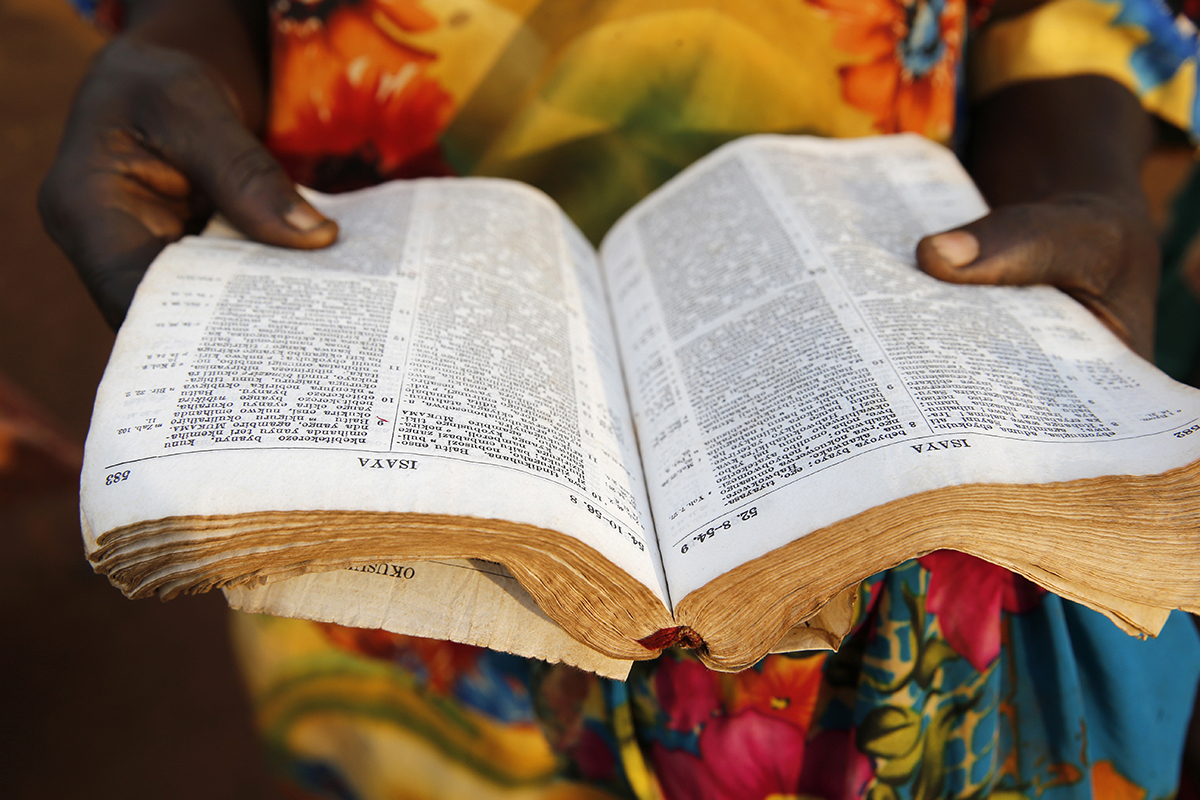 A Muslim man in eastern Uganda is suspected of killing his mother last week by putting pesticide in her food for refusing to leave her Christian faith, a relative said. A Muslim man in eastern Uganda is suspected of killing his mother last week by putting pesticide in her food for refusing to leave her Christian faith, a relative said. |
Ngalakh combines baobab fruit and peanuts to end Easter in West African nation, reciprocated by the sharing of meat breaking Ramadan's fast.
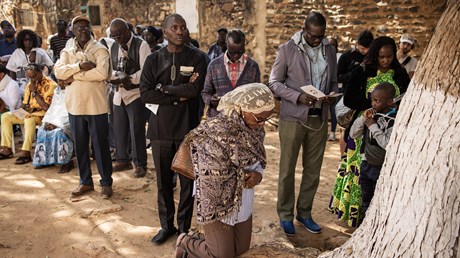 In Senegal, Muslims love to share meat. Christians share porridge.Ending the monthlong Ramadan fast this week, the faithful in the Muslim-majority West African nation invited Christian friends to celebrate Korite (Eid al-Fitr), focus on forgiveness and reconciliation, and share a wholesome meal of chicken.A little over two months later during Tabaski (Eid al-Adha), the mutton from sheep slaughtered in commemoration of Abraham’s sacrificing of his son will likewise be distributed to Christian neighbors. (Both feasts follow the lunar calendar and change dates each year.)But for Christians, the sign of interfaith unity is the porridge-like ngalakh.“Senegal is a country of terranga—‘hospitality’—and the sense of sharing is very high,” said Mignane Ndour, vice president of the Assemblies of God churches in Senegal. “Porridge has become our means of strengthening relations between Christians and Muslims.”Sources told CT the holiday treat is highly anticipated.In the local language, ngalakh means “to make porridge,” and the chilled dessert marks the end of Lent. Between 3 and 5 percent of Senegal’s 18 million people are Christians—the majority Catholic—and families gather to prepare the Easter fare on Good Friday.Made from peanut cream and monkey bread (the fruit of the famed baobab tree), these core ngalakh ingredients are soaked in water for over an hour before adding the millet flour necessary to thicken the paste. The dessert is then variously seasoned with nutmeg, orange blossom, pineapple, coconut, or raisins.Tangy and sweet yet savory, the porridge gets its brownish color from the peanut cream.The Christian community in Senegal traces its ...Continue reading... In Senegal, Muslims love to share meat. Christians share porridge.Ending the monthlong Ramadan fast this week, the faithful in the Muslim-majority West African nation invited Christian friends to celebrate Korite (Eid al-Fitr), focus on forgiveness and reconciliation, and share a wholesome meal of chicken.A little over two months later during Tabaski (Eid al-Adha), the mutton from sheep slaughtered in commemoration of Abraham’s sacrificing of his son will likewise be distributed to Christian neighbors. (Both feasts follow the lunar calendar and change dates each year.)But for Christians, the sign of interfaith unity is the porridge-like ngalakh.“Senegal is a country of terranga—‘hospitality’—and the sense of sharing is very high,” said Mignane Ndour, vice president of the Assemblies of God churches in Senegal. “Porridge has become our means of strengthening relations between Christians and Muslims.”Sources told CT the holiday treat is highly anticipated.In the local language, ngalakh means “to make porridge,” and the chilled dessert marks the end of Lent. Between 3 and 5 percent of Senegal’s 18 million people are Christians—the majority Catholic—and families gather to prepare the Easter fare on Good Friday.Made from peanut cream and monkey bread (the fruit of the famed baobab tree), these core ngalakh ingredients are soaked in water for over an hour before adding the millet flour necessary to thicken the paste. The dessert is then variously seasoned with nutmeg, orange blossom, pineapple, coconut, or raisins.Tangy and sweet yet savory, the porridge gets its brownish color from the peanut cream.The Christian community in Senegal traces its ...Continue reading... |
Seminary leaders say that the country, where Baptists are the largest Protestant denomination, has lost hundreds of churches in the war with Russia.
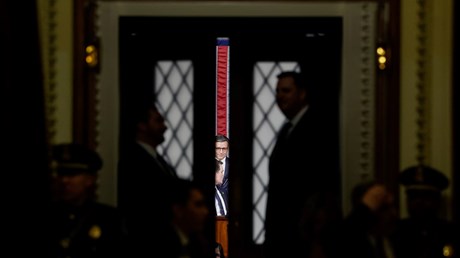 Southern Baptist leaders have written to US House Speaker Mike Johnson, a member and former official of their denomination, urging him to support Ukraine in Russia’s war against its Eastern European neighbor.“As you consider efforts to support Ukraine, we humbly ask that you consider the plight of Christians,” wrote the leaders, who either have ties to the SBC’s Southwestern Baptist Theological Seminary or to Ukrainian Baptists. “The Russian government’s decision to invade Ukraine and to target Baptists and other evangelical Christians in Ukraine has been a tragic hallmark of the war.”The letter, sent Monday, was signed by Daniel Darling, director of the seminary’s Land Center for Cultural Engagement; Richard Land, the namesake of the center and a former president of the Southern Baptist Convention’s Ethics and Religious Liberty Commission (ERLC); Yaroslav Pyzh, president of Ukrainian Baptist Theological Seminary; and Valerii Antoniu, president of the Baptist Union of Ukraine.Johnson is a former trustee of the ERLC, serving when Land—who also is a former commissioner of the US Commission on International Religious Freedom—was its president.In February, the Senate passed a $95 billion package for funding Ukraine, Israel and other allies, with $60 billion earmarked for Ukraine. But Johnson, whose tenure as House speaker may rely on his handling of the bill, has yet to schedule a House vote on the funding measure.Conservatives in the House who oppose funding for Ukraine on “America First” grounds, led by US Rep. Marjorie Taylor Greene of Georgia, have threatened to trigger a vote to remove Johnson from office.“Speaker Johnson has a really difficult ...Continue reading... Southern Baptist leaders have written to US House Speaker Mike Johnson, a member and former official of their denomination, urging him to support Ukraine in Russia’s war against its Eastern European neighbor.“As you consider efforts to support Ukraine, we humbly ask that you consider the plight of Christians,” wrote the leaders, who either have ties to the SBC’s Southwestern Baptist Theological Seminary or to Ukrainian Baptists. “The Russian government’s decision to invade Ukraine and to target Baptists and other evangelical Christians in Ukraine has been a tragic hallmark of the war.”The letter, sent Monday, was signed by Daniel Darling, director of the seminary’s Land Center for Cultural Engagement; Richard Land, the namesake of the center and a former president of the Southern Baptist Convention’s Ethics and Religious Liberty Commission (ERLC); Yaroslav Pyzh, president of Ukrainian Baptist Theological Seminary; and Valerii Antoniu, president of the Baptist Union of Ukraine.Johnson is a former trustee of the ERLC, serving when Land—who also is a former commissioner of the US Commission on International Religious Freedom—was its president.In February, the Senate passed a $95 billion package for funding Ukraine, Israel and other allies, with $60 billion earmarked for Ukraine. But Johnson, whose tenure as House speaker may rely on his handling of the bill, has yet to schedule a House vote on the funding measure.Conservatives in the House who oppose funding for Ukraine on “America First” grounds, led by US Rep. Marjorie Taylor Greene of Georgia, have threatened to trigger a vote to remove Johnson from office.“Speaker Johnson has a really difficult ...Continue reading... |
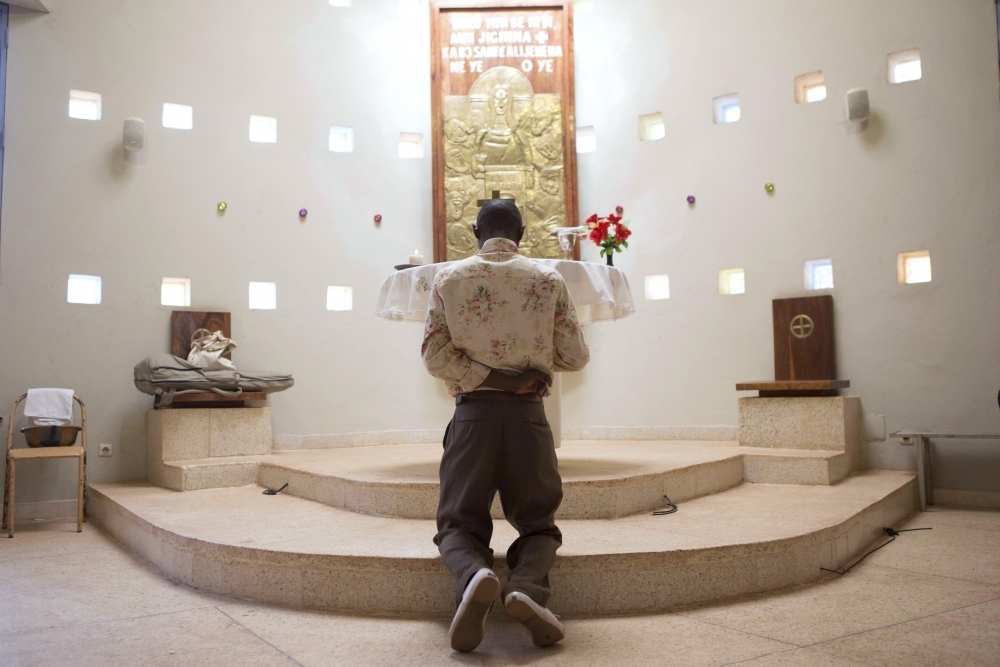 An evangelist was slain, and a mother and her 10-year-old daughter suffered serious burns for their faith in separate incidents last month in eastern Uganda. An evangelist was slain, and a mother and her 10-year-old daughter suffered serious burns for their faith in separate incidents last month in eastern Uganda. |
Ngalakh combines baobab fruit and peanuts to end Easter in West African nation, reciprocated by the sharing of meat breaking Ramadan's fast.
 In Senegal, Muslims love to share meat. Christians share porridge.Ending the monthlong Ramadan fast this week, the faithful in the Muslim-majority West African nation invited Christian friends to celebrate Korite (Eid al-Fitr), focus on forgiveness and reconciliation, and share a wholesome meal of chicken.A little over two months later during Tabaski (Eid al-Adha), the mutton from sheep slaughtered in commemoration of Abraham’s sacrificing of his son will likewise be distributed to Christian neighbors. (Both feasts follow the lunar calendar and change dates each year.)But for Christians, the sign of interfaith unity is the porridge-like ngalakh.“Senegal is a country of terranga—‘hospitality’—and the sense of sharing is very high,” said Mignane Ndour, vice president of the Assemblies of God churches in Senegal. “Porridge has become our means of strengthening relations between Christians and Muslims.”Sources told CT the holiday treat is highly anticipated.In the local language, ngalakh means “to make porridge,” and the chilled dessert marks the end of Lent. Between 3 and 5 percent of Senegal’s 18 million people are Christians—the majority Catholic—and families gather to prepare the Easter fare on Good Friday.Made from peanut cream and monkey bread (the fruit of the famed baobab tree), these core ngalakh ingredients are soaked in water for over an hour before adding the millet flour necessary to thicken the paste. The dessert is then variously seasoned with nutmeg, orange blossom, pineapple, coconut, or raisins.Tangy and sweet yet savory, the porridge gets its brownish color from the peanut cream.The Christian community in Senegal traces its ...Continue reading... In Senegal, Muslims love to share meat. Christians share porridge.Ending the monthlong Ramadan fast this week, the faithful in the Muslim-majority West African nation invited Christian friends to celebrate Korite (Eid al-Fitr), focus on forgiveness and reconciliation, and share a wholesome meal of chicken.A little over two months later during Tabaski (Eid al-Adha), the mutton from sheep slaughtered in commemoration of Abraham’s sacrificing of his son will likewise be distributed to Christian neighbors. (Both feasts follow the lunar calendar and change dates each year.)But for Christians, the sign of interfaith unity is the porridge-like ngalakh.“Senegal is a country of terranga—‘hospitality’—and the sense of sharing is very high,” said Mignane Ndour, vice president of the Assemblies of God churches in Senegal. “Porridge has become our means of strengthening relations between Christians and Muslims.”Sources told CT the holiday treat is highly anticipated.In the local language, ngalakh means “to make porridge,” and the chilled dessert marks the end of Lent. Between 3 and 5 percent of Senegal’s 18 million people are Christians—the majority Catholic—and families gather to prepare the Easter fare on Good Friday.Made from peanut cream and monkey bread (the fruit of the famed baobab tree), these core ngalakh ingredients are soaked in water for over an hour before adding the millet flour necessary to thicken the paste. The dessert is then variously seasoned with nutmeg, orange blossom, pineapple, coconut, or raisins.Tangy and sweet yet savory, the porridge gets its brownish color from the peanut cream.The Christian community in Senegal traces its ...Continue reading... |
Seminary leaders say that the country, where Baptists are the largest Protestant denomination, has lost hundreds of churches in the war with Russia.
 Southern Baptist leaders have written to US House Speaker Mike Johnson, a member and former official of their denomination, urging him to support Ukraine in Russia’s war against its Eastern European neighbor.“As you consider efforts to support Ukraine, we humbly ask that you consider the plight of Christians,” wrote the leaders, who either have ties to the SBC’s Southwestern Baptist Theological Seminary or to Ukrainian Baptists. “The Russian government’s decision to invade Ukraine and to target Baptists and other evangelical Christians in Ukraine has been a tragic hallmark of the war.”The letter, sent Monday, was signed by Daniel Darling, director of the seminary’s Land Center for Cultural Engagement; Richard Land, the namesake of the center and a former president of the Southern Baptist Convention’s Ethics and Religious Liberty Commission (ERLC); Yaroslav Pyzh, president of Ukrainian Baptist Theological Seminary; and Valerii Antoniu, president of the Baptist Union of Ukraine.Johnson is a former trustee of the ERLC, serving when Land—who also is a former commissioner of the US Commission on International Religious Freedom—was its president.In February, the Senate passed a $95 billion package for funding Ukraine, Israel and other allies, with $60 billion earmarked for Ukraine. But Johnson, whose tenure as House speaker may rely on his handling of the bill, has yet to schedule a House vote on the funding measure.Conservatives in the House who oppose funding for Ukraine on “America First” grounds, led by US Rep. Marjorie Taylor Greene of Georgia, have threatened to trigger a vote to remove Johnson from office.“Speaker Johnson has a really difficult ...Continue reading... Southern Baptist leaders have written to US House Speaker Mike Johnson, a member and former official of their denomination, urging him to support Ukraine in Russia’s war against its Eastern European neighbor.“As you consider efforts to support Ukraine, we humbly ask that you consider the plight of Christians,” wrote the leaders, who either have ties to the SBC’s Southwestern Baptist Theological Seminary or to Ukrainian Baptists. “The Russian government’s decision to invade Ukraine and to target Baptists and other evangelical Christians in Ukraine has been a tragic hallmark of the war.”The letter, sent Monday, was signed by Daniel Darling, director of the seminary’s Land Center for Cultural Engagement; Richard Land, the namesake of the center and a former president of the Southern Baptist Convention’s Ethics and Religious Liberty Commission (ERLC); Yaroslav Pyzh, president of Ukrainian Baptist Theological Seminary; and Valerii Antoniu, president of the Baptist Union of Ukraine.Johnson is a former trustee of the ERLC, serving when Land—who also is a former commissioner of the US Commission on International Religious Freedom—was its president.In February, the Senate passed a $95 billion package for funding Ukraine, Israel and other allies, with $60 billion earmarked for Ukraine. But Johnson, whose tenure as House speaker may rely on his handling of the bill, has yet to schedule a House vote on the funding measure.Conservatives in the House who oppose funding for Ukraine on “America First” grounds, led by US Rep. Marjorie Taylor Greene of Georgia, have threatened to trigger a vote to remove Johnson from office.“Speaker Johnson has a really difficult ...Continue reading... |
Experts debate the origin of the date- or nut-filled pastry, but Middle Eastern believers love the taste and the Good Friday symbolism in its shapes.
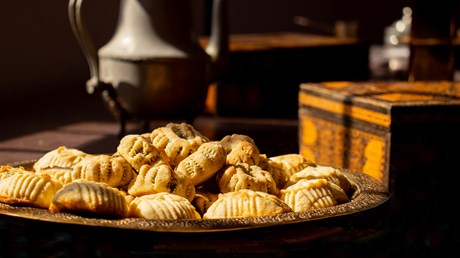 The Middle East’s favorite sweet symbolizes Good Friday.Maamoul is a buttery cookie baked with semolina and stuffed with dates or nuts—usually walnuts or pistachios. Seasoned with a variety of spices, for centuries it has flavored the Easter holiday for Christians, the end of Ramadan for Muslims, and Purim for the Sephardic Jews of Jerusalem.Three shapes are common: an elongated oval, a circular ring, and a rounded dome. Patterns are pressed into the dough by tweezer or with a traditional wooden mold, often in the shape of a sunburst and sometimes with a cross.For Christians, the oval resembles the sponge given to Jesus to drink from. The ring, his crown of thorns. And the dome is shaped like his rock-hewn tomb, sealing its scented treasure within.“Is that so?” asked Hoda Khoury, a Lebanese mother of three adult children, hard at work preparing the sweet. “That’s nice. That would make maamoul a Christian tradition.”Not all believers know the deeper meaning.Recipes vary, as do the names. Called kakh in Egypt, kleicha in Iraq, and kombe in southeast Turkey, experts have differing opinions on the cookie’s origin. Many find traces of Pharaonic or Mesopotamian beginnings, some suggesting the imprinted patterns reflect ancient worship of the sun.Charles Perry, translator of the medieval Baghdad Cookery Book, says maamoul descends from the Persian kulachag, perhaps reflected in the Iraqi name today. Lebanese historian Charles El Hayek suggests the cookie may have originated in the Neolithic period but that the modern sharing of the sweet began in Fatimid Egypt (A.D. 909–1171).Ultra-modern is the chocolate filling—promoted by Hershey’s Middle East.But the tradition ...Continue reading... The Middle East’s favorite sweet symbolizes Good Friday.Maamoul is a buttery cookie baked with semolina and stuffed with dates or nuts—usually walnuts or pistachios. Seasoned with a variety of spices, for centuries it has flavored the Easter holiday for Christians, the end of Ramadan for Muslims, and Purim for the Sephardic Jews of Jerusalem.Three shapes are common: an elongated oval, a circular ring, and a rounded dome. Patterns are pressed into the dough by tweezer or with a traditional wooden mold, often in the shape of a sunburst and sometimes with a cross.For Christians, the oval resembles the sponge given to Jesus to drink from. The ring, his crown of thorns. And the dome is shaped like his rock-hewn tomb, sealing its scented treasure within.“Is that so?” asked Hoda Khoury, a Lebanese mother of three adult children, hard at work preparing the sweet. “That’s nice. That would make maamoul a Christian tradition.”Not all believers know the deeper meaning.Recipes vary, as do the names. Called kakh in Egypt, kleicha in Iraq, and kombe in southeast Turkey, experts have differing opinions on the cookie’s origin. Many find traces of Pharaonic or Mesopotamian beginnings, some suggesting the imprinted patterns reflect ancient worship of the sun.Charles Perry, translator of the medieval Baghdad Cookery Book, says maamoul descends from the Persian kulachag, perhaps reflected in the Iraqi name today. Lebanese historian Charles El Hayek suggests the cookie may have originated in the Neolithic period but that the modern sharing of the sweet began in Fatimid Egypt (A.D. 909–1171).Ultra-modern is the chocolate filling—promoted by Hershey’s Middle East.But the tradition ...Continue reading... |
Unlike Esther of the Bible, an orphan who was born in Jerusalem and exiled in Babylon, Queen Rania of Jordan could not be more polar opposite.
|
Christian leaders are condemning President Biden's proclamation of Easter Sunday as "Transgender Day of Visibility," calling it an “insult” to the religious beliefs of millions.
|
More than 200 people were baptized along a scenic Florida beach on Easter Sunday as part of a worship service hosted by a revivalist who once dabbled in the occult before she was freed by Christ.
|
More than 200 people were baptized along a scenic Florida beach on Easter Sunday as part of a worship service hosted by a revivalist who once dabbled in the occult before she was freed by Christ.
|
This is for all the church planters and their volunteers on post-Easter Monday, struggling to make it from week-to-week, and for the leaders and members of established churches that are anything but “mega”—well below the 200 threshold in terms of average attendance. I don't know how Easter Sunday went for you, but I have a hunch.
|



 Links
Links  Articles
Articles  Blogs
Blogs  Videos
Videos  News
News  Colors
Colors 

 New links
New links

